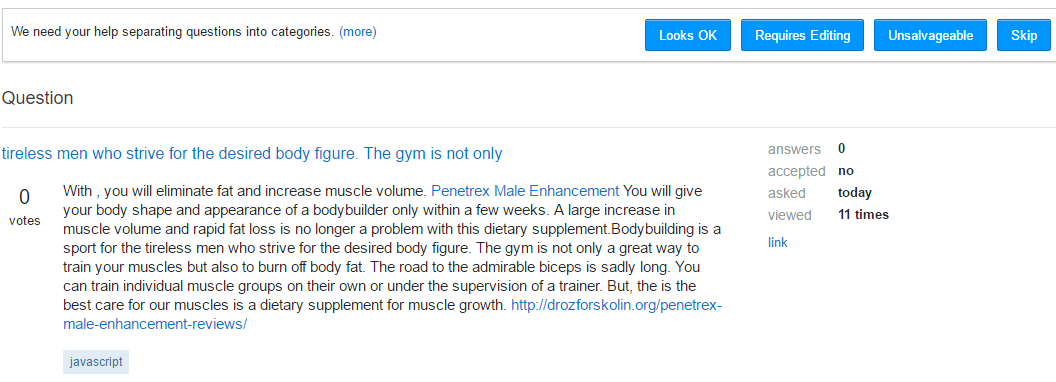When doing triage reviews, I find a lot of audit reviews are for spam questions. Not sure what the percentage is, but I'd guess around a third of audit questions are spam. In the 'wild' though I've only ever seen one real spam question.
Questions are far more likely to require closing because of low effort, unclear or the other reasons. This may be a result of the tags I most often answer - WordPress attracts the noobest of the noobs - but I don't think so.
On top of that, I think spam is really easy to spot, compared to say, a question that toes the line between too broad and suitable. We don't really need to be tested on it as often as we are in my opinion.
What do people think? Should we shift some weight away from spam questions toward other types of 'deplorables'?
EDIT - Here's a perfect example of what I'm talking about:
You'd have to be on life support to not realise that is spam. I knew straight away this was going to be an audit question. Guess what - it was. What is the point of wasting reviewers time with this?
